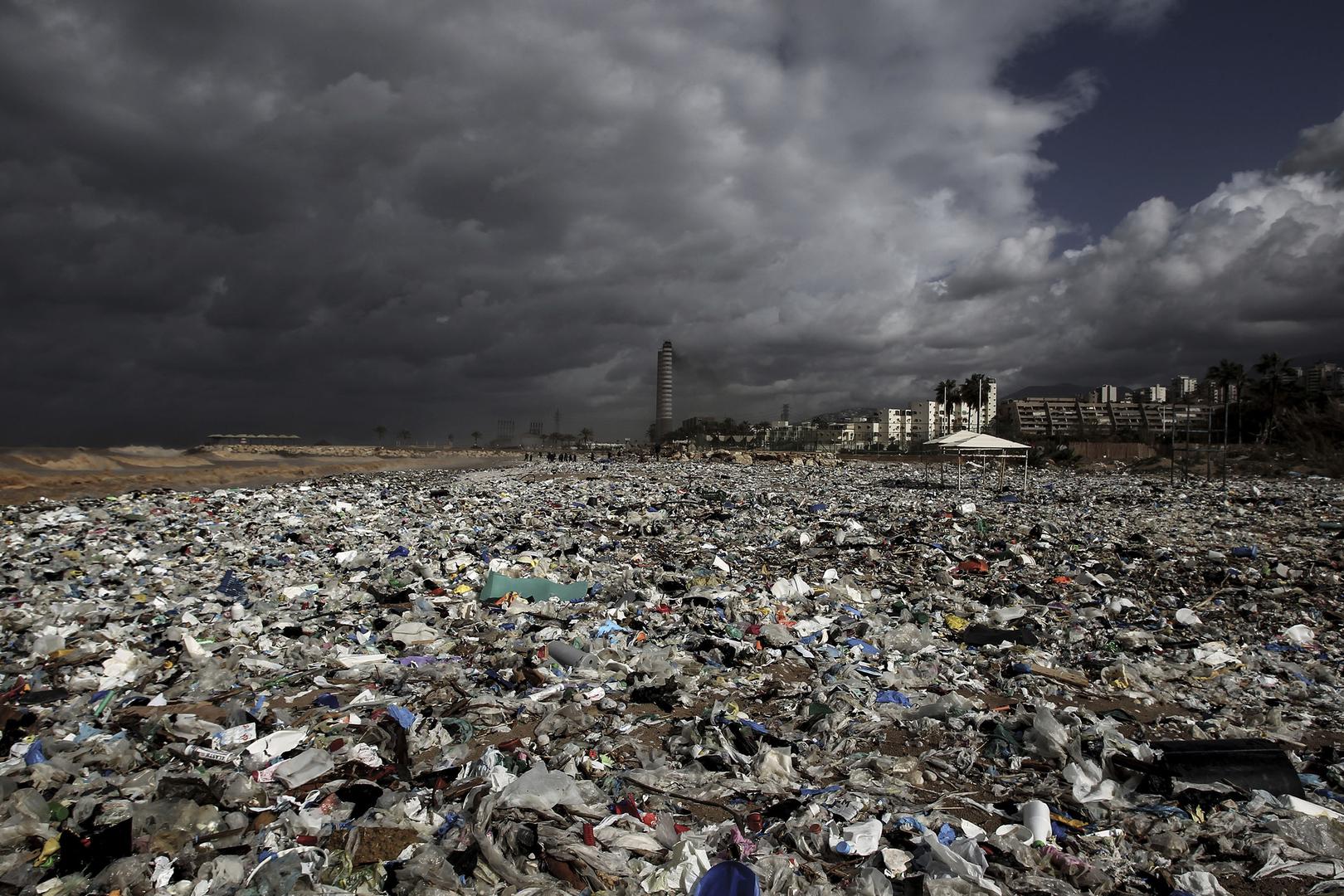The Daily Star BEIRUT: A number of Lebanese expatriates working in Kazakhstan are set to arrive in Beirut Tuesday afternoon after they were involved in a brawl at their workplace last week, a source from the Lebanese Foreign Ministry said. “The plane is supposed to leave around 5 or 6 [a.m. Tuesday],” the source told […]
BEIRUT (Reuters) – Two aides to a Lebanese Druze minister were killed on Sunday when his convoy came under fire in an area of support for a rival Druze faction, in what the minister called an assassination attempt. Saleh al-Gharib, Lebanon’s minister of state for refugee affairs, is close to pro-Syrian Druze leader Talal Arslan. […]

BY CHRIS TAYLOR mashable.com — — For our summer vacation, my wife drove us hell-for-leather between National Parks, driven by the urge to collect every stamp in her Parks Passport. We eagerly snapped up the new National Parks Geek merch. Our dog was sworn in as a #BarkRanger. And I was deputized photographer, urged to get shots of thousand-year-old petroglyphs and cave dwellings, not to mention the 200 million-year-old tree trunks. We came home. My wife pored over her passport and stamps. The magnets and decals went on fridges and cars. The dog wore his Bark Ranger badge around the neighborhood with beaming pride. And my photos? We haven’t looked through them yet. I doubt we ever will. If we really need to see that petroglyph or that tree again, it would be faster to Google them — where we’d find a more pleasingly professional shot. If you’re anything like me, here’s the exact number of times in any given year that you pore over your Apple Photos, Google Photos or similar library: approximately never. Who has the time? Despite the encouragement those companies give us to store all our images with them, it sits there as ones and zeros — billions of merely theoretical photos expending massive amounts of energy on cloud servers, costing each of us a few bucks every month. Or worse, the photos are consigned to death row on a single vulnerable hard drive, awaiting its inevitable failure. Sure, you might dip into the archive for a minute or two every now and then. Wearing your Instagram or Facebook hats, you pluck an image from obscurity, elevating them to the relative stardom of a few Likes. In the social archives, at least, you might look back at them more often. But you’re lucky if this elevation happens to more than one in a hundred snaps.
The average picture you take will fade into forever, and it’s high time we got real about this. We live in an age of digital abundance, one that has devalued photos more than anything. The Snapchat-and-Stories generation treats them as expendable and ephemeral, but Gen Xers are no better — we just fool ourselves into thinking we’re preserving history in these dusty, pricy digital archives. But what exactly are we preserving, and for whom? Will our descendants, beset on all sides by ever more media, even bother to look? If we don’t, why would they?
The Apple design boss instrumental in creating the iPhone is exiting the company after an almost three-decade run. Jony Ive is starting his own design firm, LoveFrom, and will count his soon-to-be-former employer as a key client. Ive led design on several Macs, the iPod, iPad and Apple Watch, as well as the “spaceship” Apple […]
BEIRUT, (Xinhua) — Lebanese President Michel Aoun said on Friday that his country will ask the United Nations to extend the mandate of the UN Interim Force in Lebanon (UNIFIL) for one year, the Presidency’s website said. The cooperation between the Lebanese army and the UNIFIL has achieved stability and security on the southern borders, […]

by trtworld.com —Walid Jumblatt, the president of the Progressive Socialist Party of Lebanon, berated the leaders of the Gulf countries for participating in the Bahrain conference, warning them against “betraying” Palestinians, while reminding them of the unflinching Ottoman position on Palestinian independence. Organised by Jared Kushner, the son-in-law of US President Donald Trump, the “Peace to Prosperity” economic workshop in Bahrain was promoted as a peace plan for Palestine and even described as “the deal of the century.” While the conference failed to bring all stakeholders of the Palestine-Israel conflict to the negotiation table, Palestinians rejected Kushner’s deal outright. Jumblatt’s scathing criticism of the conference and of pro-Israel Arab leaders came as another blow to Kushner’s attempts to generate interest toward his deal from the Arab world. “Under Sultan Abdul Hamid (II), (Theodor) Herzl asked him to buy Palestine to transport the Jews (there), and the Sultan refused,” Jumblatt wrote on Twitter. “Today in Bahrain, the grandson of Herzl, Jared Kushner, will ask Arabs to sell Palestine to transport Palestinian families to Jordan to Sinai to Lebanon to Syria to the diaspora,” he continued. “Will the Arabs do what the Ottomans rejected?” the Lebanese leader asked.
Herzl is the founding father of Zionism, the official ideology of Israel, whose picture is hung in the Knesset, the Israeli parliament, in Jerusalem. In 1896, Herzl wrote “The Jewish State,” which is considered one of the most influential Zionist texts, outlining the road map for Israel. He also organised the first Zionist congress in Switzerland’s Basel. Jumblatt reminded his Arab counterparts about the time when Ottoman Sultan Abdul Hamid II refused to accept a Zionist settlement in Palestine, defying various odds during his reign between 1876 and 1909. Herzl had tirelessly worked to implement the Zionist plan, meeting notable political figures across the world, which included Abdul Hamid II.

by hrw.org —(Beirut) – The Borj Hammoud landfill, one of two principal landfills serving Beirut, Lebanon, is set to reach capacity by the end of July 2019, Human Rights Watch said today. The government had initially estimated that the landfill would be in operation until 2020. The government has taken no steps to provide an alternative site for Beirut’s solid waste. Instead, a 13-page solid waste roadmap the Environment Ministry submitted to a ministerial committee on June 3 recommends expanding the Borj Hammoud landfill. Experts say that the landfill is affecting nearby residents’ health. Yet, the Environment Ministry has proposed its expansion without an Environmental Impact Assessment or consultation with affected communities, solid waste management experts have said. “The government has to answer for why Lebanon’s waste management infrastructure has not been improved upon four years after the last waste crisis led to mounds of trash in the streets of Beirut,” said Lama Fakih, acting Middle East director at Human Rights Watch. “The government may be ready to bury its head in the sand but residents don’t want to end up buried in piles of trash.”
The Borj Hammoud landfill is currently emanating particularly strong odors, which an international consultant hired by the Environment Ministry determined was caused by manure and garbage in various states of decomposition that have been dumped there. Nearby residents and public health experts fear that the odors signal the emission of toxic pollutants. According to air pollution experts, chronic exposure to these strong odors is linked to respiratory diseases, allergies, and the spread of bacteria. Further, experts state that leachate from the Borj Hammoud landfill is being dumped into the sea, polluting the water and making the sea in areas surrounding the landfill dangerous for swimming. Both Lebanese legislation and international standards stipulate that an Environmental Impact Assessment must be conducted before a project can begin and that measures must be taken to mitigate unavoidable adverse impacts.

Tom Perry, Laila Bassam — BEIRUT (Reuters) – U.S. President Donald Trump’s vision for Mideast peace has hit a raw nerve in Lebanon, reviving fears of any plan that would permanently settle Palestinian refugees in the country and shift its Christian-Muslim sectarian balance. he first part of the White House plan for peace between Israel and the Palestinians focuses on encouraging $50 billion of investment in the Palestinian territories and three neighboring Arab states, one of them Lebanon. Lebanese of all sects are objecting to ideas that have surfaced so far, seeing $6 billion for Lebanon as an inducement to accept the settlement of Palestinians who have lived as refugees in the country since Israel’s creation in 1948. Rejecting the naturalization of Palestinians has been a rare point of agreement among Lebanese through a troubled history including the 1975-90 civil war in which Palestinian groups played a major role.
The first part of the plan is set to be unveiled by White House senior advisor Jared Kushner, Trump’s son-in-law, at a Bahrain conference on Tuesday. The Lebanese government was invited but is not attending. The prospects of the plan getting anywhere do not look good: the Palestinian Authority is itself staying away from the conference and has refused to deal with the Trump administration for 18 months, accusing it of bias toward Israel. “As a Lebanese and an Arab, I reject the entire American project, and with regards to the Lebanese part, of course I am against Palestinian naturalization, not because we are against Palestinians, but so they return to their country,” said Hussam Mneimneh, a 43-year-old taxi driver. “It doesn’t suit us for there to be naturalization of any nationality because it creates a demographic, geographic imbalance, and this is something we do not accept.”

By Reuters ISTANBUL — Turkey’s main opposition claimed a decisive victory on Sunday in Istanbul’s re-run election, dealing one of the biggest blows to President Tayyip Erdogan during his 16 years in power and promising a new beginning in the country’s largest city. Ekrem Imamoglu, mayoral candidate of the secularist Republican People’s Party, was leading with 54 percent of votes against 45 percent for Erdogan’s AK Party candidate, with more than 99% of ballots opened, Turkish broadcasters said. The election was Istanbul’s second in three months after results of an initial March vote were scrapped, setting up the do-over as a test of Turks’ ability to check what many saw as their president’s increasingly authoritarian power. “Today, 16 million Istanbul residents have renewed our faith in democracy and refreshed our trust in justice,” Imamoglu told supporters. His AK Party opponent, former Prime Minister Binali Yildirim, congratulated him and wished him “all the luck” in serving Istanbul, Turkey’s commercial hub. Erdogan also tweeted his congratulations to the Republican People’s Party candidate. Imamoglu had won the original mayoral election on March 31 by a narrow margin, which prompted the Islamist-rooted AK Party to demand a re-run, citing what it said were voting irregularities.

By Ken Dilanian nbcnews.com —WASHINGTON — A limited U.S. strike on Iran of the sort President Donald Trump says he canceled Thursday night could prompt a potent Iranian reaction that in turn might spark a much larger military conflict, current and former U.S. officials and experts tell NBC News. Iran could do enormous damage to the global economy by mining the Strait of Hormuz, the waterway off its coast through which flows 40 percent of the crude oil traded internationally. That action, even if quickly countered by the U.S. Navy, would cause oil prices to spike. But that may not be Iran’s first move in response to a limited American bomb and missile attack, experts say. Iran would likely turn first to its proxies, who could inflict major damage on American allies, experts say. Houthi rebels in Yemen could step up attacks against Saudi Arabian infrastructure with missiles and drones. Shiite militias could destabilize Iraq. Hezbollah, the Iran-backed terrorist organization, could attack Israel or other American interests anywhere in the world.
And if Iran wanted to kill Americans, any of those groups could do that on its behalf, with some deniability, said the experts. Shiite militias could overrun the U.S. Embassy in Baghdad and seize hostages. Hezbollah, which, before 9/11, had killed more Americans than any other terror group, could strike in places as far flung as Latin America, where the group has a strong presence. “Traditionally, when faced with this sort of American action, Iran doesn’t tend to respond directly and immediately, but they do so asymmetrically and over a period of time,” said Ray Takeyh, a former State Department official and Iran expert at the Council on Foreign Relations. Trump said in a tweet Friday that he stopped a U.S. attack on Iran that would have targeted three sites. He told NBC’s Chuck Todd in an exclusive interview Friday that, after being told the attack could cost 150 Iranian lives, he decided it was not proportional to the downing of an unmanned spy drone.



